Colonel Vasily Masyuk: I accept the Moscow detachment
Voennoye Obozreniye continues to publish chapters from the book of memoirs of retired colonel Vasily Kirillovich Masyuk, the legendary chief of the 117th Moscow border detachment.
Remember how it all began ...
In the proposed material, you will get acquainted with the truthful history veteran about how it all began, how the officer went to his command post. Then he still did not know and did not foresee what life and difficult trials he would have to endure.
He did it and proved that this is exactly what a real border guard officer should be. To whom the Motherland entrusted to protect its borders. And no matter how difficult it is, the main thing is to withstand and win. At any cost! There is no other way.
So, the floor is given to Vasily Kirillovich.
How I received the Moscow frontier detachment - two words cannot describe it. In my understanding, the position of the head of the border detachment is the quintessence and core of all positions that are available in the military command and control system of the border troops. This is a commander, staff officer, administrator, intelligence officer, diplomat and educator, and much, much more ...
This is a living person with his own merits and demerits, a family man, father and husband. Everything must be passed through yourself, to understand the measure of responsibility that falls on you for the fate of the border and its people. Prepare your family for this difficult fate.
And then suddenly there was such a turn.
To be honest, I was embarrassed and surprised by this proposal. I suppose every officer who thinks about his career will agree with this conclusion - this is natural and even normal.
And if you take into account the level of training, business, moral and physical qualities, as well as the well-deserved authority of the officer-leader among the personnel, this is quite logical and understandable.
Time to take a break
I pause at this point.
Honestly, in the life of every officer there is a person who influences you by the power of his own example and becomes a kind of a standard to follow.
Those for me were Lieutenant General Anatoly Nesterovich Martovitsky, Major General Vitaly Fedorovich Gritsan who succeeded him, and later Major General Anatoly Terentyevich Chechulin.
To be honest, the relationship between Lieutenant General Martovitsky and me, Lieutenant Colonel, was more like the relationship between father and son. I respected him very much and loved him like a son for his intelligence, human charm, composure, self-control and endurance, the ability to set people up for solving combat, extreme tasks.
He could, without much fear for what his superiors thought of him, take responsibility for the mistakes and shortcomings of his subordinates. Talking about the life border path of Anatoly Nesterovich, unfortunately, passed away from us into eternity, it is impossible not to break the chronology.
Here is why.
There is an episode in his biography that, like a flash, brightly highlights his amazing qualities, which include the courage, valor and instant determination of this border guard officer.
As the head of the Dalnerechensky border detachment, he once ordered the commander of a helicopter crew with an alarming group on board to take a violator of the state border, a secret carrier, in very difficult conditions, when he managed to penetrate the territory of China, a neighboring state.
A protest was lodged on the Soviet side. Leonid Ilyich Brezhnev, General Secretary of the CPSU Central Committee himself, was reported on the legality of the actions of the decisive Lieutenant Colonel Martovitsky. A service career, and not only it, must have been hanging in the balance. In the end, common sense won: after all, Anatoly Nesterovich was not thinking about himself at that difficult moment, but about the safety of the Motherland.
Everything that is "due" in such cases - reprimands on the service line, on the party line, and so on - the head of the border detachment received. But we managed to preserve the main thing - honor and dignity. There was also a new one - the deepest respect of colleagues.
Calling fire on myself
After all, many of them knew firsthand: their decision to conduct a daring operation, when the helicopter does not leave "fingerprints" - does not touch the wheeled chassis of someone else's territory (material evidence!) And at the same time the intruder is captured, Martovitsky with some of the higher authorities - did agree.
However, when it came to an international scandal, he took all the blame for what happened solely on himself. And we must pay tribute to General of the Army Vadim Aleksandrovich Matrosov, the then head of the country's border troops. A wise commander and the most honest man, he did the almost incredible, if only the fate of the brave officer did not put a black meta.
Moreover, when the passions subsided, Matrosov, once again carefully analyzing the motives of the lieutenant colonel's behavior in an extreme situation, came to the conclusion that it was precisely such officers that you could rely on in everything - and began to help Anatoly Nesterovich in every possible way in the service.
Matrosov three times subsequently returned Martovitsky from the troops to Moscow, to Glavk, and personally talked with him; I sent them to a breakthrough - to the most critical sections of the border. He knew: where Martovitsky was, the service would improve. The border will be locked.
During the Afghan events, Anatoly Nesterovich headed the task force, was the first deputy chief of the troops of the Central Asian border district. He took an active part in the preparation of many military operations, personally supervised eleven of them.
He received his baptism of fire during the large-scale Warduj operation, which began on April 9, 1986, and ended on May 6. In the course of it, the border guards did not lose a single person, and this was the great merit of Martovitsky himself.
Among the KSAPO officer corps and beyond, he enjoyed unquestioned authority and respect. For me, the events of localizing the mass escape with the seizure of equipment from the personnel of the Khorog border detachment are especially memorable.
These events were not included in any report, but they were very vague in their content, and it is not known how they would have ended if someone else were in the place of Anatoly Nesterovich Martovitsky.
I suppose that it was my personal position, tough and principled in resolving that situation, that predetermined the choice of my candidacy when I was appointed head of the Moscow frontier detachment.
Arrival time 14:00
And the following happened.
I was at 4 "Ak-Su" POGZ. There was a planned check of the service and combat activities of the border unit. With the first change of personnel, live firing and combat grenade throwing were carried out at the shooting range.
At about 11:30, the outpost duty officer reported to me that the POGO operational duty officer had called and handed over the command of the head of the Murghab detachment, Colonel Valery Yefimovich Avdonin, to get in touch with him urgently.
I called the detachment switchboard, but the commander was not in the commander's office. I asked the telephone operator to connect with Lieutenant Colonel Alexander Nikolaevich Morozov, his immediate superior. As it turned out, the commander held a meeting in the intelligence department and went with the head of the intelligence department, Colonel Dzhanibek Aubakirov, to Alexander Nikolaevich's to drink a cup of strong coffee, and at the same time to discuss the main issues regarding the service and combat activities of the detachment, its people and family members.
These were genuine commanding, male and human relations of officers-leaders, worthy of all respect and imitation. Alexander Nikolaevich listened to my brief report and passed the telephone receiver to the head of the detachment. Colonel Avdonin was short and laconic. He ordered to retain the senior officer of the border guard department of the headquarters of Major Valery Kolodin, and to urgently leave for the detachment's control. Arrival time is 14:00.
After a short meeting and assigning tasks to Major Kolodin for the period of my absence, I left for the detachment's headquarters. Then I still could not know that I would no longer be destined to return to the outpost, and the next meeting with the officers and personnel would take place only in two and a half months.
The service UAZ was driven by sergeant Rustam Umarov. He himself is from Samarkand, graduated from the Tashkent Pedagogical Institute, a historian by profession, an educated person, and was a very colorful representative of Eastern culture.
Communicating frankly with him, he thoroughly studied the history of the peoples inhabiting and living in Central Asia, their customs, mores and traditions. With his help, I seriously began to study the Koran, not thinking about how soon all this knowledge gained will be useful in my future as an officer.
Umarov was in love with cars, knew the technique thoroughly and kept the UAZ in exemplary condition. Outwardly, Rustam was always perfectly dressed, hemmed and ironed, but, leaving with me to the border units, at the first opportunity he changed his clothes and asked for permission to help Zavod drivers in the repair and maintenance of equipment. He was respected and considered his own in all divisions of the border.
The road from the outpost to the detachment was gravel, but in excellent condition. We must pay tribute to the engineering service in the person of its chief, Captain Andrei Ogurtsov, and to the local road services. The tracks in the highlands were maintained at the appropriate level.
The moment of making a decision
All the way I was wondering, what could be the reason for such an urgent call to the detachment management?
At the time set by the head of the border detachment, he arrived at the meeting. All his deputies were in the commander's office. Avdonin was short and laconic. The information he had and what he brought to us turned out to be really shocking.
It turned out that in the neighboring Khorog POGO, a group of 92 arrested people, along with border fighters who joined them, seized four units of vehicles and follows the Pamir highway through the zone of responsibility of our detachment towards the city of Osh.
The order of the higher command of the district and the task force in the city of Dushanbe was as follows: to take measures to stop the group of fugitives and return them to Khorog.
Colonel Avdonin perfectly understood what a difficult and unusual task for the detachment was set before him and the command as a whole. In everyday service and combat activities, in schools and academies, we were taught a lot, behind everyone had experience in organizing border security, combat and political training, training and educating subordinates, as well as conducting military operations and special operations in Afghanistan. But in a similar situation, none of us have ever been.
To make a decision, the commander gave the opportunity to each of the officers present at the meeting to report their proposal. There were few options for action. Everyone clearly understood that in the current situation, the detachment's personnel and military equipment would be involved.
It will be necessary to set up checkpoints from outposts and commandant's offices, strict adherence to security measures, and most importantly, it is necessary to determine the line of conduct of personnel in performing a task unusual for border guards. This was the most important and difficult question, the answer to which had to be found.
Avdonin silently listened to reports, made notes in his workbook. Outwardly, he was calm and balanced, but in everything his inner tension and fatigue seemed to be felt.
My turn has come too
- Comrade Major, - asked Valery Efimovich, - what can you suggest on this issue?
The answer was short.
- Comrade Colonel! I ask you to entrust the operation to me. First, I propose to set up a single post in the canyon area at a distance of 9 km from the detachment's garrison, which I will head. The peculiarity of the road section is such that by blocking the BMP-1 road, we will deprive the convoy with the fugitives of any maneuver. Next, it will be necessary to establish live contact with the personnel and act according to the situation.
To complete this mission, I need an infantry fighting vehicle with a crew. I ask permission to determine the composition of the crew myself. Weapon do not take. Maintain communication via the onboard radio station. If necessary, deploy personnel with equipment at the detachment shooting range. Feed people, organize their rest and try to understand everything that happens in detail.
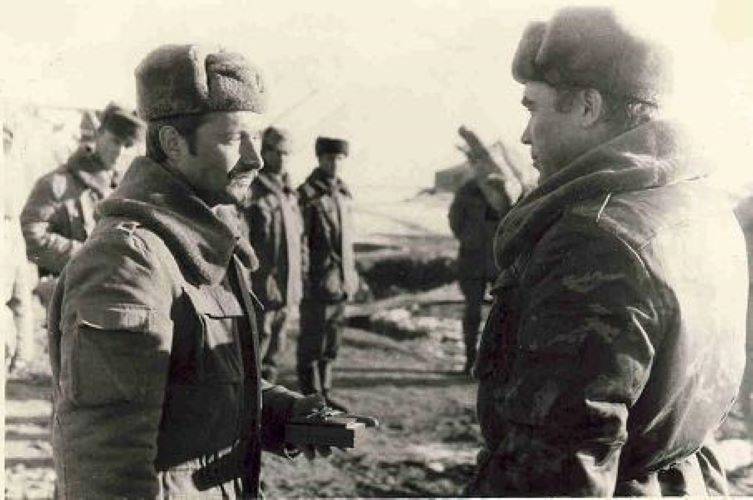
Valery Efimovich looked at me carefully and immediately turned his gaze to the head of the political department of the detachment, Lieutenant Colonel Morozov.
The question immediately followed:
- What do you think, Alexander Nikolaevich, about the proposal of your deputy?
The answer came immediately:
- Approve! He can handle it!
An estimate based on the time of the column's movement showed that it should be expected at the design point in four hours. However, it was still necessary to hurry.
The ending should ...
- Valentin Malyutin, Alexey Podymov
- from the archive of the author and the funds of the Museum of the Border Troops of the Russian Federation
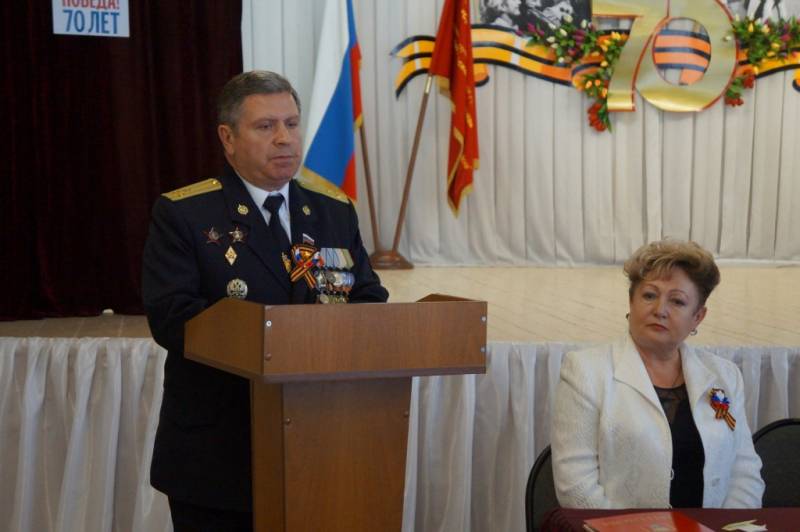
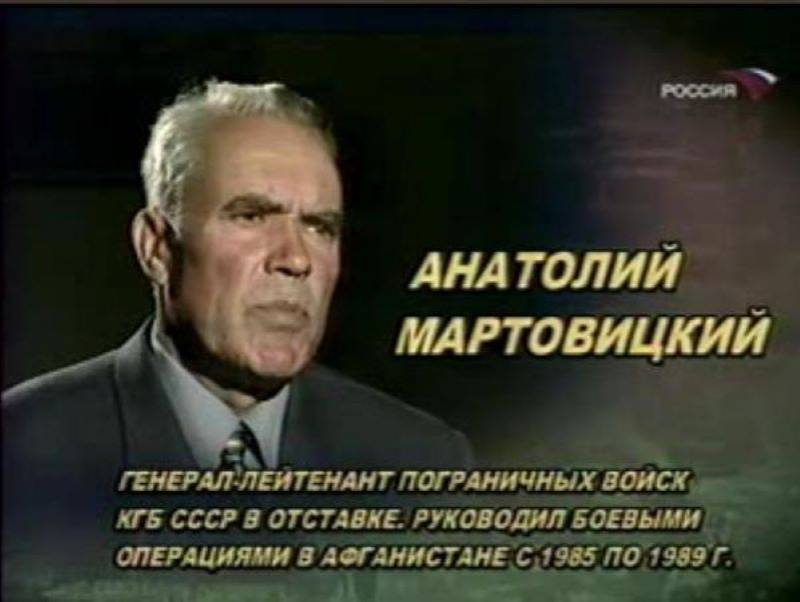
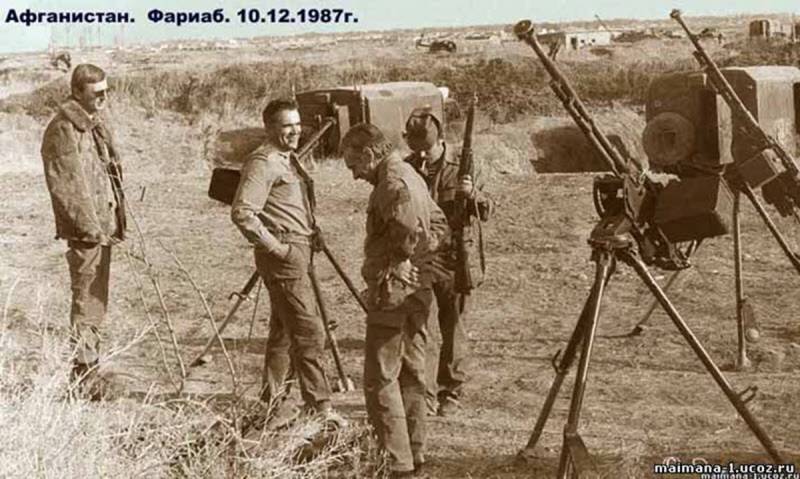
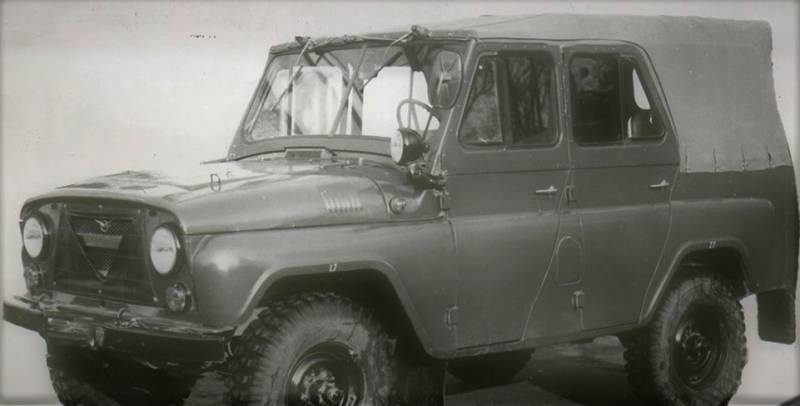
Information